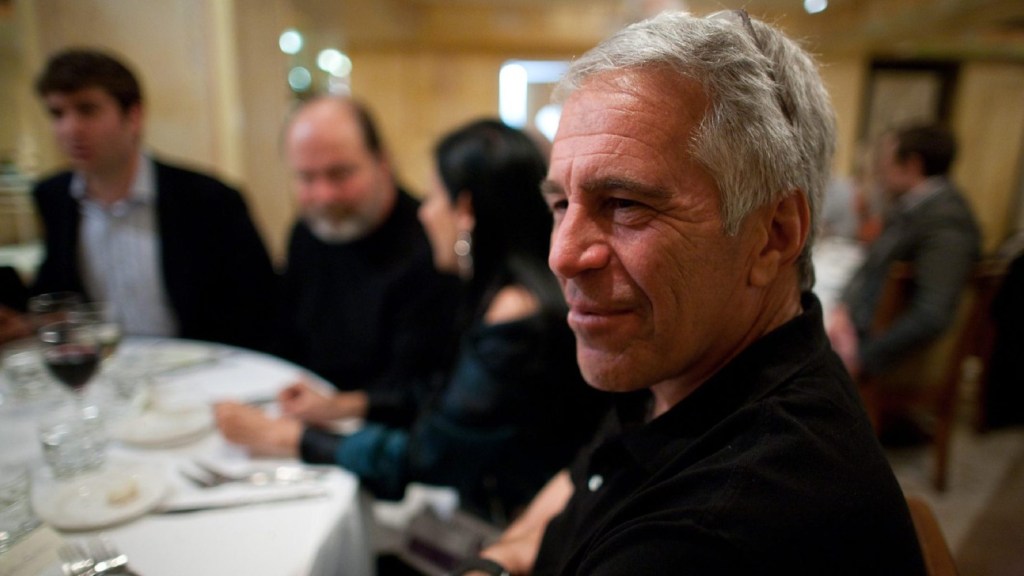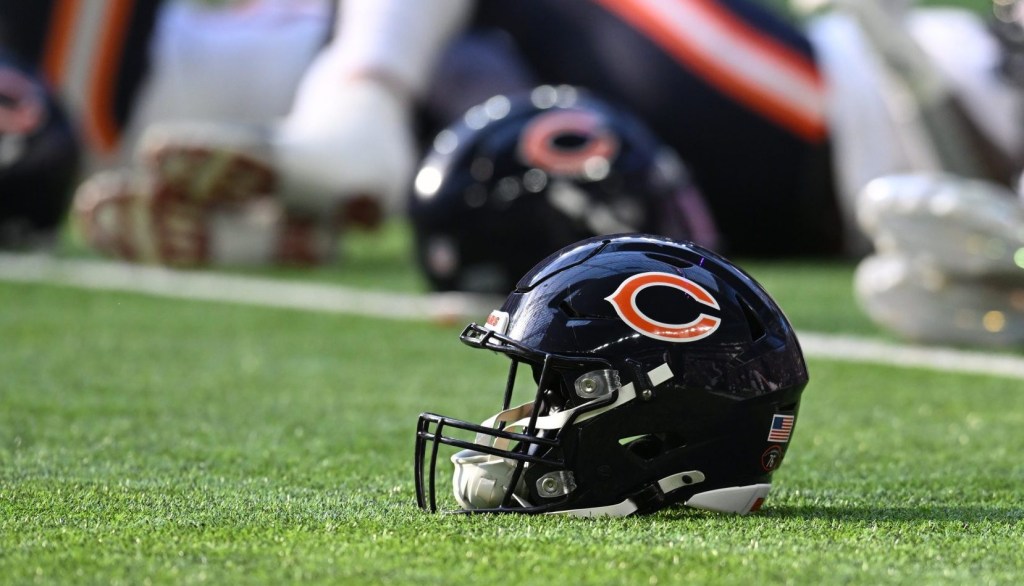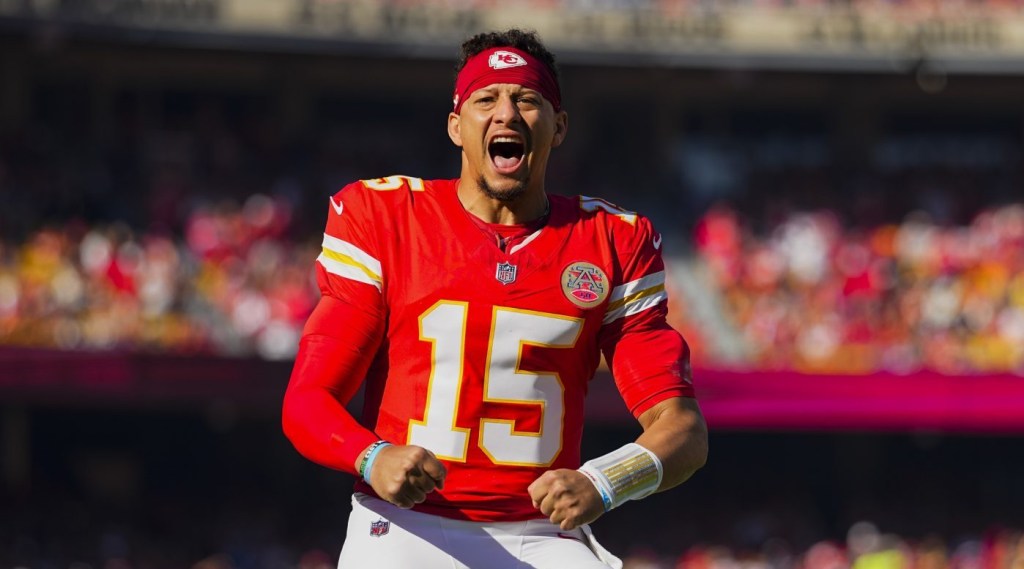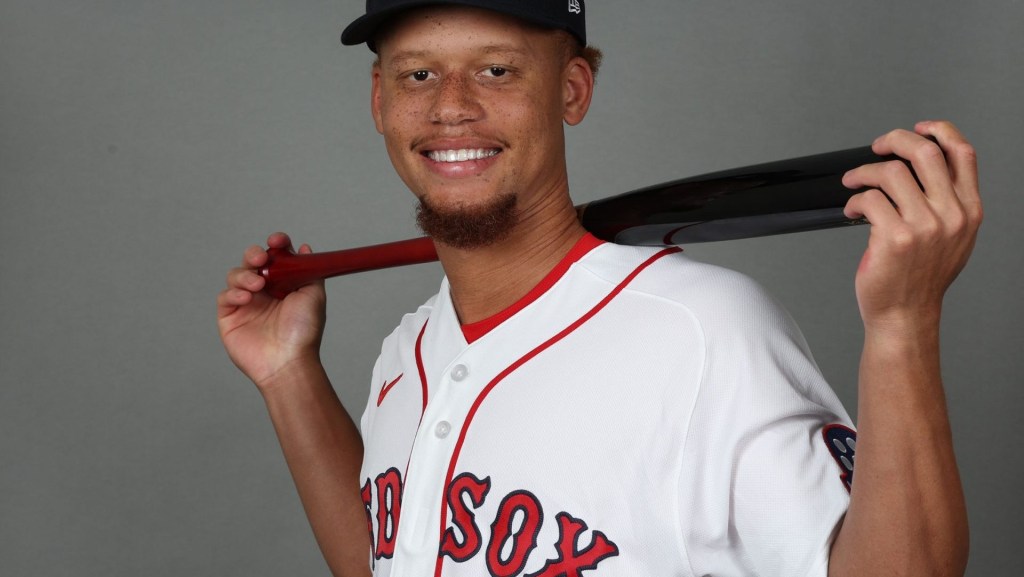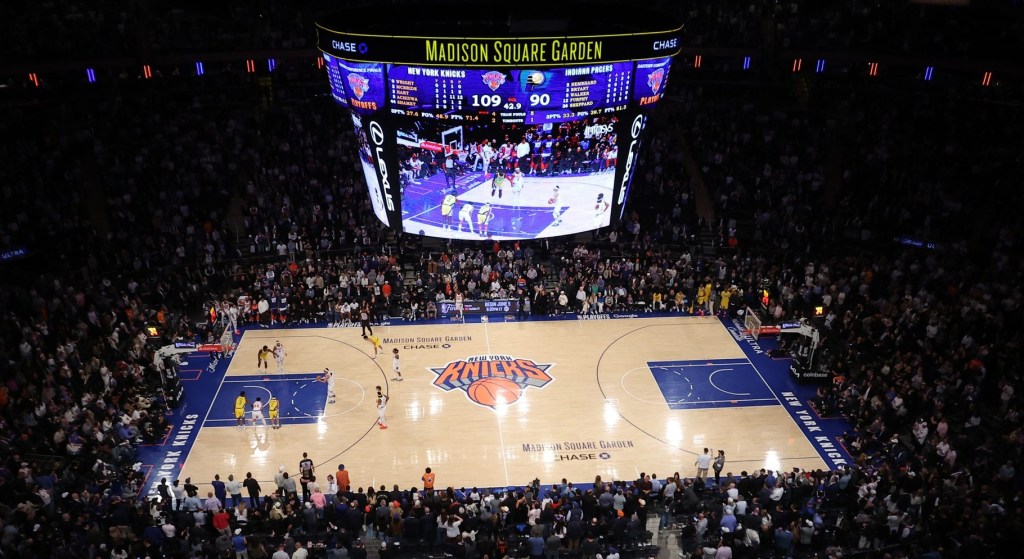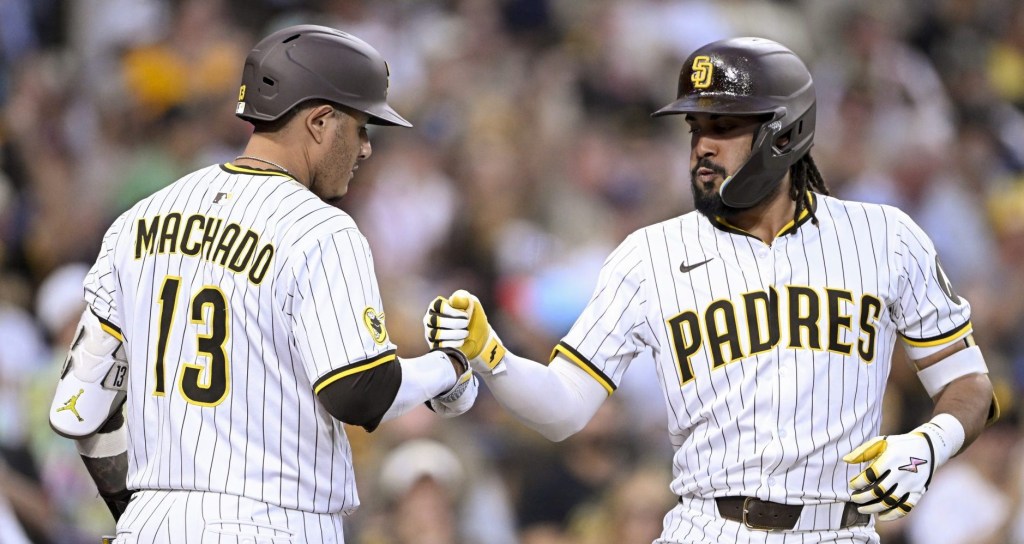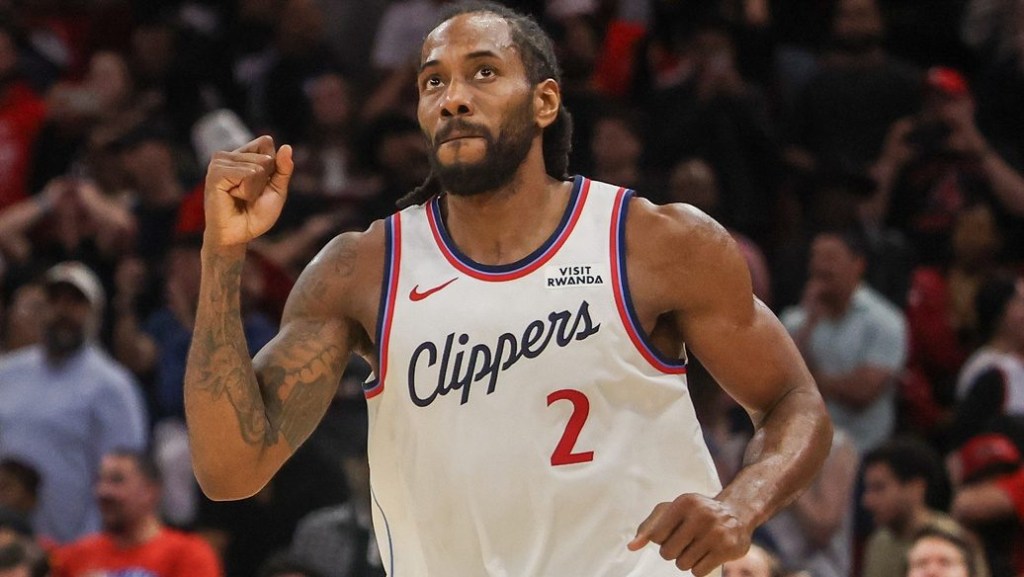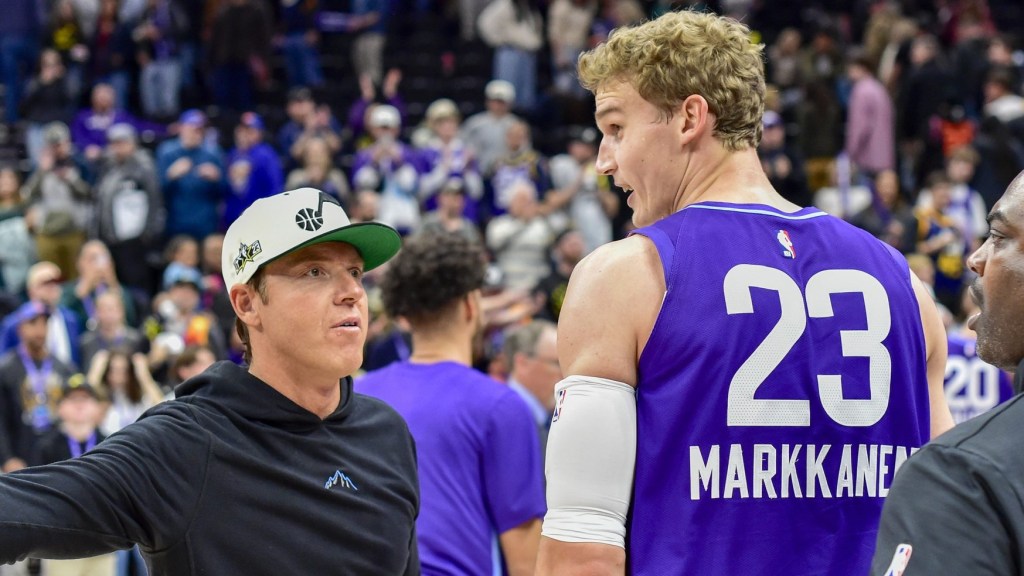NEW YORK — Tim Collins leads a unique double life as a New Yorker during the WNBA season. He works an overnight shift on Manhattan’s Lower East Side from 2 a.m. to 10 a.m. as a PIX 11 news producer. Then, he heads to Brooklyn’s Barclays Center, where he puts on a red jersey and tries to slow down Sabrina Ionescu and Breanna Stewart.
Collins, 28, is a member of the New York Liberty practice squad, and for a few days a week, he’s among the 12 to 20 players tasked with pushing the defending WNBA champions in practice and impersonating their opponents.
During a practice in late May, as the team prepared to host the Golden State Valkyries for two consecutive games, the assignment for Collins and his teammates remained the same all week: mimicking the Valkyries’ ultra-physical, defensive style of play. The practice squad pushed, bumped, and clogged the passing lanes to force the Liberty out of their comfort zones.
It’s a big commitment for a group made up primarily of former men’s collegiate and pro basketball players—especially since the majority of them sacrifice their bodies for no compensation.
In 2023, Collins moved to New York from Alabama to work at PIX 11, but he still wanted to be involved with the sport he played in high school and semi-professionally, even if it meant balancing a glorified volunteer gig with his full-time job. “I love basketball,” Collins tells Front Office Sports. “I’ve been around it since I was little, no matter the level, always trying to be involved and play the game as much as I could.”
From being around the game, Collins knew WNBA teams had practice squads, so he Googled to see how the local franchise handled its own. He found an article and an Instagram post about the previous season’s tryouts and emailed the listed address with his interest. He received an invite to a preseason tryout that included as many as 300 people.
Collins, who is a 6-foot-4 self-described do-it-all player, checked all the boxes and found out over email that he’d made the team. In addition to skill set and physical traits, the Liberty look for selfless players and issue a questionnaire to evaluate personality fit. Every Liberty practice player interviewed for this story described himself as a Swiss Army knife, who plays hard and makes the most of his frame.
Liberty coach Sandy Brondello tells FOS her ideal practice player “understands the concepts that we’re trying to get. It’s just a little bit of IQ, but some self-control as well knowing that the guys, they’re here for us, not we’re here for them. But at the end of the day we want them to be basketball players.”
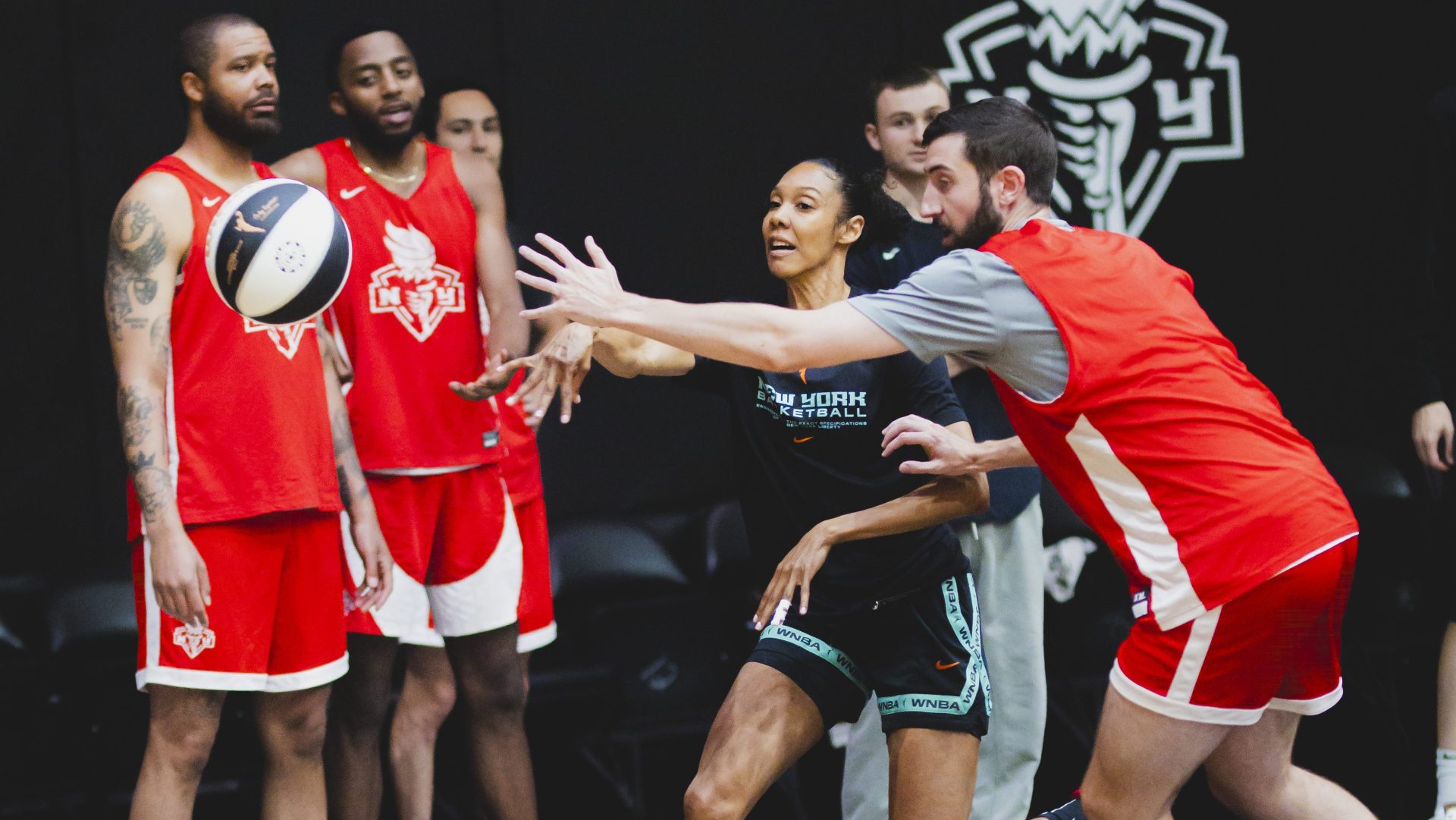
When Collins reported to his first practice, the team threw him right into the fire. “Having to guard Stewie was my first assignment,” he says. “She’s unstoppable. It’s like having to guard the greatest women’s basketball player of all time.”
Practice squads are crucial in the WNBA where rosters are capped at 12 players, and teams need extra bodies on the floor. In the NBA, teams can fill out a practice with talent from their G League team or two-way players.
Every WNBA organization builds its practice squad differently. Teams that share ownership or facilities with NBA counterparts have borrowed their player development coaches for help during practice. Some recruit from local colleges. And others, like the Liberty, hold open tryouts.
The Liberty start forming their scout team for the next season when the current one is wrapping up, gauging the interest of existing members and prioritizing needs from there. New York has several practice players who have been with the team for multiple seasons. For instance, when the team traded for 6-foot-6 Jonquel Jones in 2023, Parker Lovett, who runs the practice squad, had to find some height to give her a more formidable defense.
The Liberty’s unpaid practice players get tickets and meal vouchers, but since they’re not employees, they don’t get health care. (They have access to the training staff before and after practice.) When the Liberty won the WNBA title in 2024, the practice players didn’t get championship rings but were offered tickets to the limited-capacity ceremony at City Hall and to the post-parade celebration at Barclays.
After all, the practice players were instrumental in the Liberty winning it all.
“It’s funny,” Collins says. “When you come in here so many people ask you, ‘Do you get paid?’ It’s always the first question. It’s really just being able to get the chance to come in here and be around the team. It evens it out.”
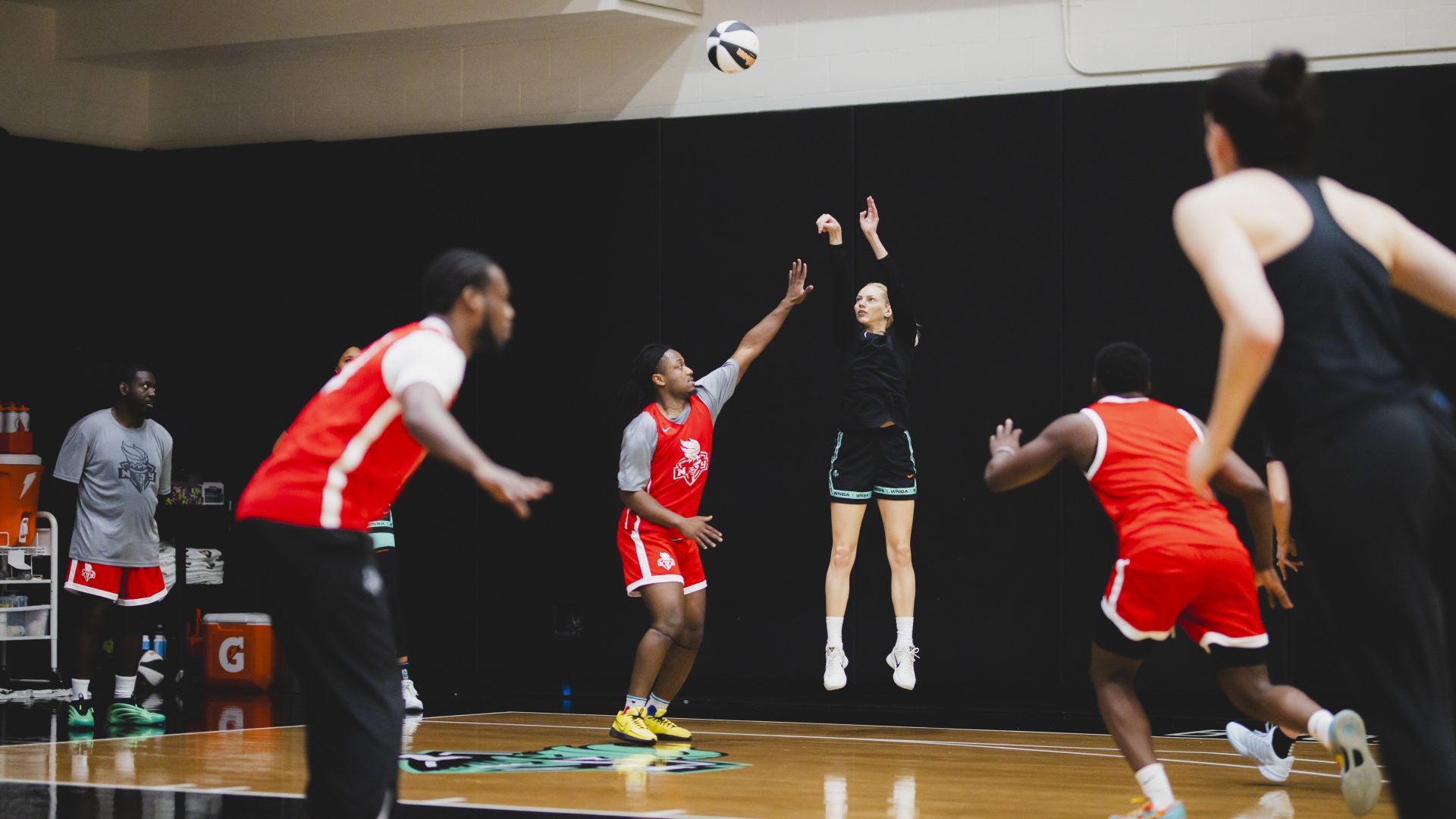
But the Liberty have found a way to compensate some of their practice players. This season the team created multiple full-time positions for player development coordinators and hired some of the standout practice squad members.
The Liberty tell FOS they wanted to improve the quality of the practice squad and incentivize attendance and commitment. General manager Jonathan Kolb credits Lovett for developing the jobs and pushing for their creation.
“We were trying to create something sustainable,” Kolb tells FOS. “This does three things for us. One, it compensates the individual for their work; two, it creates upward mobility within the organization for those individuals; and three, it creates an environment for the practice squad, who may not be in a development coordinator or paid position, that gives them something to aspire to. If they want a foot in the door of the Liberty organization, it’s a great way to start.”
The Liberty offered one of the first full-time player-development coordinator jobs to Noah Shy. The 25-year-old is an AAU coach on Long Island in the offseason and played at Division III Brooklyn College, where he was the Bulldogs’ leading scorer for his last two seasons.
As a player who embraced diving for loose balls and hard defense, he was the perfect fit for the practice squad when he joined a year ago. He tells FOS one of the hardest parts was balancing his competitiveness with the reality that his job is to push the team and not impersonate Stephen Curry.
Shy spent his first season as Ionescu’s primary defender in practice. “It was just like, run around screens, try to make it as tough as possible, because … she has to fight through so much [contact],” Shy explains. “And I understand I’m going to get hit with screens, I’m going to get hit with elbows, I’m going to go through multiple actions to try and stay with her. Once you get that mental note that you’re here to help them and make it tough on them and you’re going to get beat up, then it makes it easier.”
Now, Shy is pulling double duty. He still participates in practice, but he also works game days. His full responsibilities include helping out with morning shootarounds and individual workouts, and during games, pulling film for the coaching staff at halftime or between timeouts. He’s also involved with planning and participating in rehab workouts for players returning from injury.
Shy now has access to the coaches’ locker room but still suits up in the same area as the scout team players. “That’s where I started,” he tells FOS.
If he steps into a full-time coaching role down the road, he’d join a list of other notable names who got their starts by working in practice.
Minnesota Lynx associate head coach Eric Thibault decided to pursue coaching after serving as a practice player for the Missouri women’s basketball team. Michigan head coach Dusty May and Clippers president of basketball operations Lawrence Frank both served as Indiana basketball managers—unpaid student workers who run drills, keep stats, and tape practice. Even Magic guard Tyus Jones and Bulls guard Tre Jones started out on a WNBA practice squad. Before they starred at Duke, they played against Maya Moore and the Lynx as high schoolers in Minnesota.
“There’s opportunity with everything, especially with volunteering,” Shy says. “If you show up, you do your best, you say hello, you be a great person, eventually something will happen.”
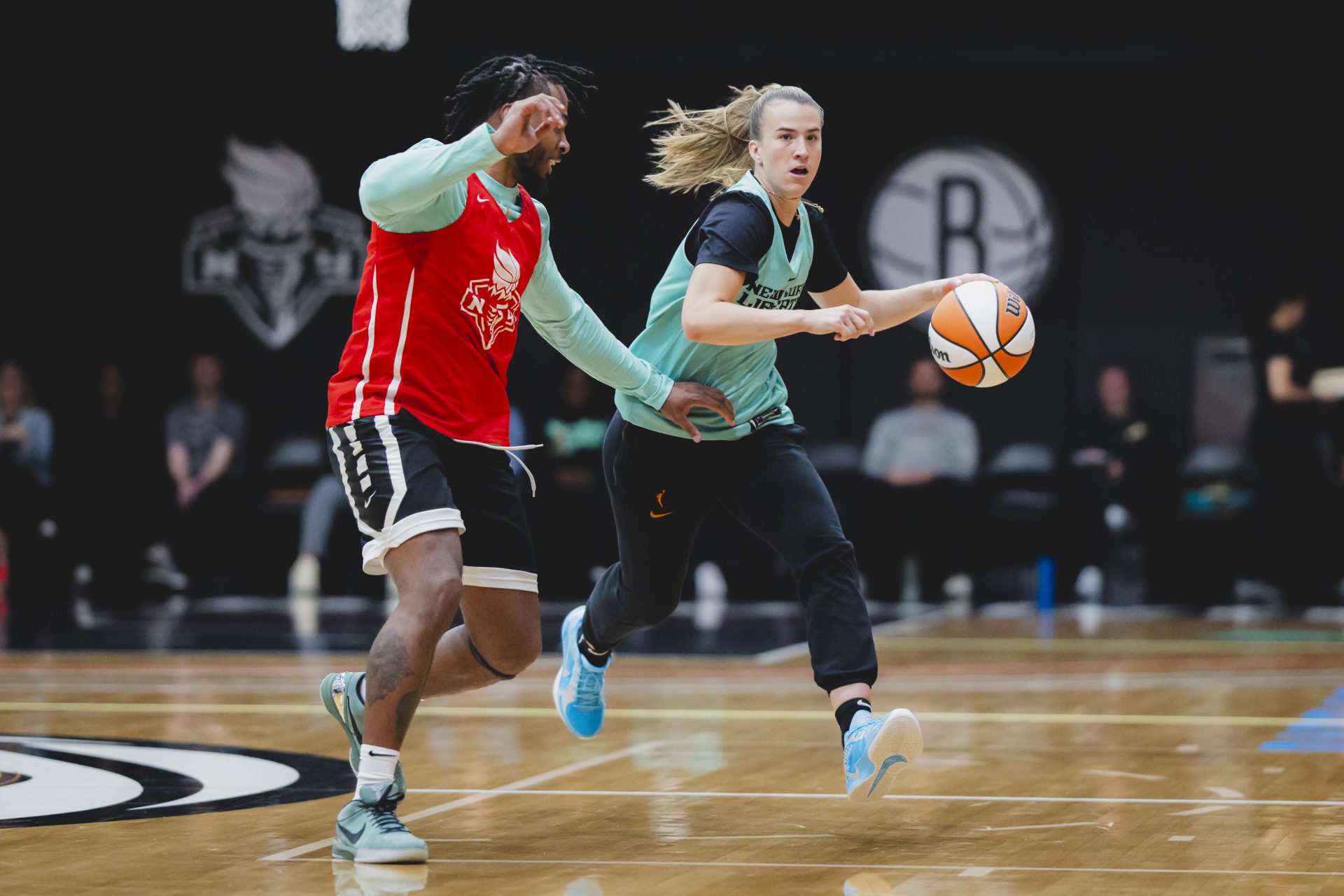
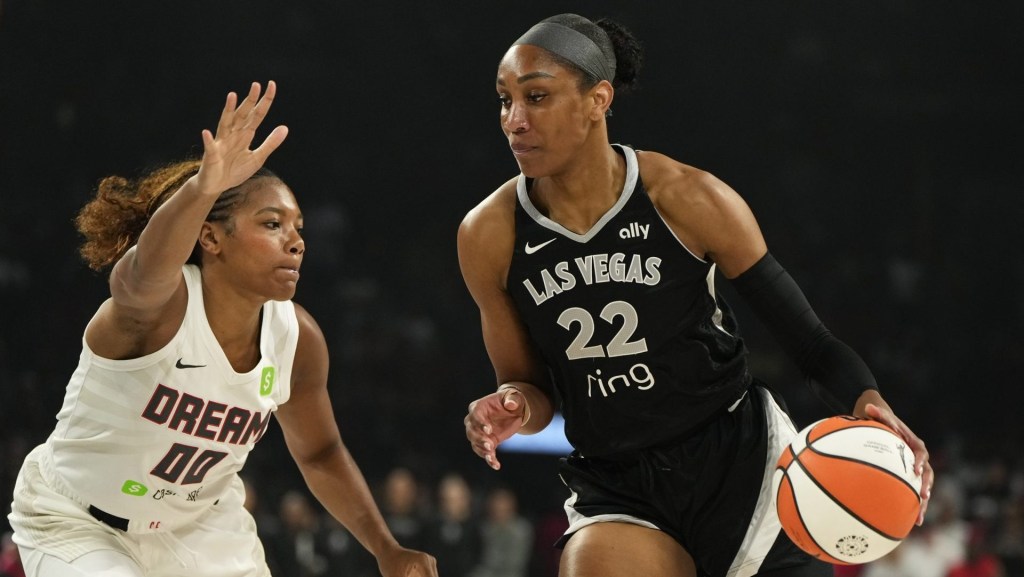
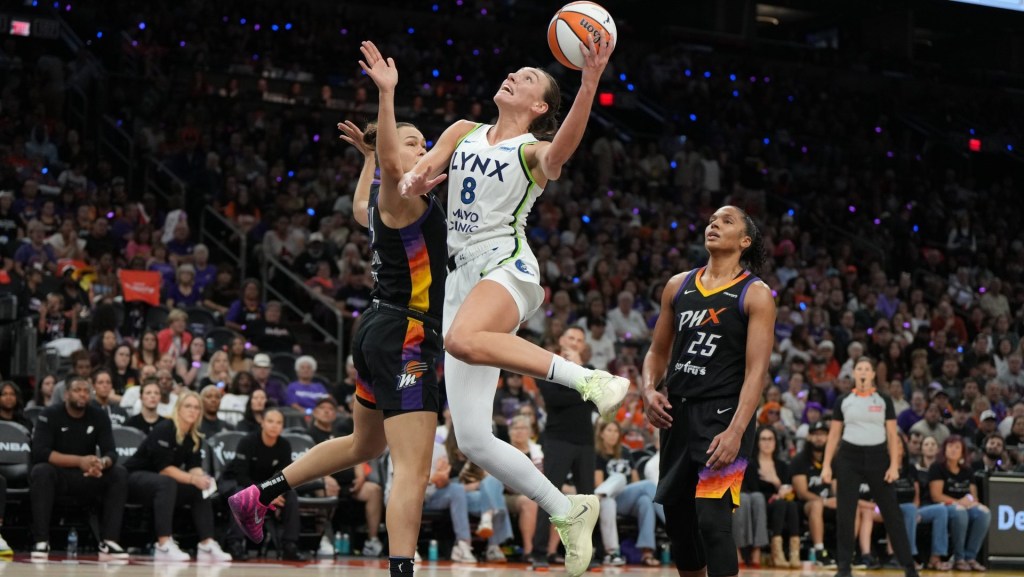
![[Subscription Customers Only] Jul 13, 2025; East Rutherford, New Jersey, USA; Chelsea FC midfielder Cole Palmer (10) celebrates winning the final of the 2025 FIFA Club World Cup at MetLife Stadium](https://frontofficesports.com/wp-content/uploads/2026/02/USATSI_26636703-scaled-e1770932227605.jpg?quality=100&w=1024)
